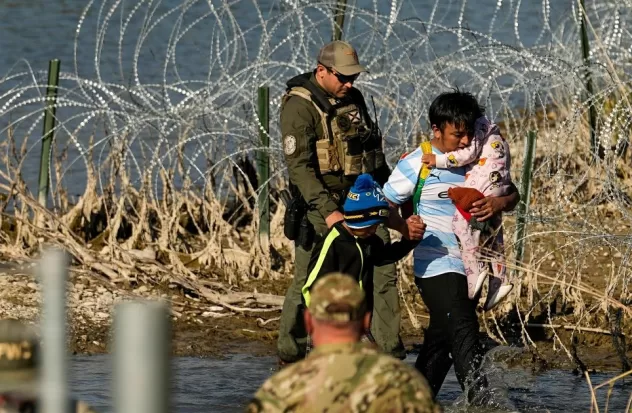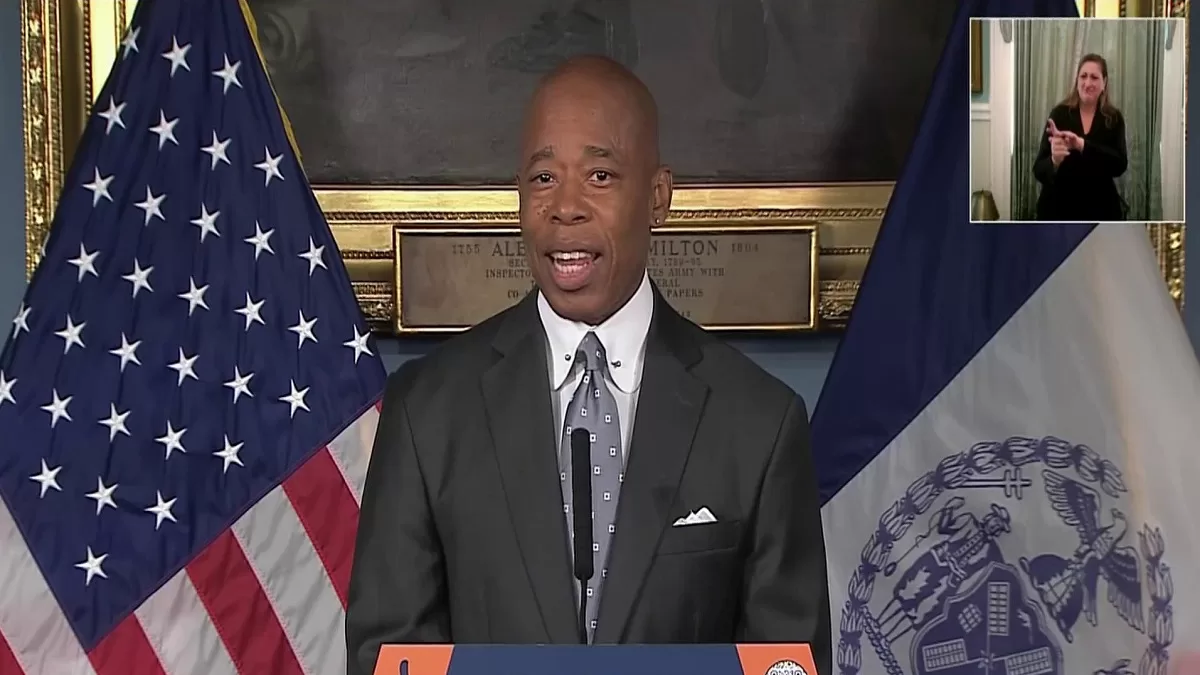The legislation — expected to be signed by Gov. Kim Reynolds — will make it a state crime for a person to be in Iowa if they have previously been denied entry or removed from the United States. The measure reflects part of a Texas law that is currently blocked in the courts.
Across Iowa, Latino and immigrant community groups are organizing meetings and informational materials to try to answer people’s questions. They are also requesting official statements from local law enforcement agencies, as well as face-to-face meetings.
In Iowa and across the country, Republican leaders have spoken out that “every state is a border state” while accusing President Joe Biden of neglecting his responsibilities to enforce federal law. immigration. That led Republican governors to send troops to support the Texas governor. Greg Abbott’s Operation Lone Star and legislatures to propose a variety of strategies at the state level.
“We’ve had enough”
Iowa governments pushed the measure to address what one lawmaker called a “clear and present danger” posed to Iowans by some migrants crossing the southern border. Republican lawmaker Steve Holt acknowledged constitutionality issues surrounding the bill, but ultimately agreed that Iowa has “the right, the duty and the moral obligation to act to protect our citizens and our sovereignty.”
“If we end up in a court battle with the federal government, if this passes, go for it,” Holt said during a subcommittee meeting in February. “I think it’s time for all states to stand up and say… ‘we’ve had enough, we will defend our people.’”
What does the law establish?
The Texas law is stalled in the courts, following a challenge from the Justice Department, which argues that the law conflicts with the federal government’s authority over immigration matters. The department has not commented on the Iowa bill.
Iowa law, like Texas law, Could Mean Criminal Charges for People Who Have Outstanding Deportation Orders or who have previously been expelled or denied entry to the United States. Once in custody, immigrants must follow a judge’s order to leave the United States or be prosecuted.
The judge’s order must identify the method of transportation to leave the country and an Iowa police officer or agency to monitor the migrants’ departures. Those who do not leave could be arrested on more serious charges.
The Iowa bill faces the same implementation and enforcement issues as the Texas law, as deportation is a “complicated, costly and often dangerous” federal process, said immigration law expert Huyen Pham of the College of Law. from Texas A&M.
“How are Iowa law enforcement agencies going to determine if someone has entered Iowa in violation of an immigration order?” Pham asked. He said questions remain about which country a detained person would be sent back to, how they would get there and how agencies would communicate with those countries.
Deportations are a binational process, he said, meaning the federal government negotiates with the governments of other countries. A disjointed state-by-state immigration policy could threaten those international relations, Pham said.
Mexico rejects state laws
Mexico has already said it would reject any enforcement of immigration laws by state or local governments.
The Iowa State Patrol, as well as representatives from multiple local police departments across the state, declined to comment on the project.
Shawn Ireland, president of the Iowa Sheriffs and Deputies Association and deputy sheriff in Linn County, said in an email that law enforcement officials would consult with county attorneys for guidance if the project is becomes law.
But Ireland added that community policing-police relationships are a priority, and that law enforcement’s focus “is not on looking for people who came to this country illegally and who are not committing crimes.”
Manpower of labour
Manny Gálvez, leader of the community group Oye Mi Voz, based in the rural town of West Liberty, said the bill has galvanized immigrant communities, including some in hard-to-reach areas of Iowa, to send he message that immigration is a human issue and that meatpacking plants, corn fields and state construction projects depend on migrant labor.
Legislators promoting a bill like this are disconnected from that reality, Gálvez said.
“Criminalizing the immigrant community is not the answer,” he said. “We tell people: “Don’t be afraid. Do not be afraid. We are going to continue fighting against this.’”
Source: With information from AP






